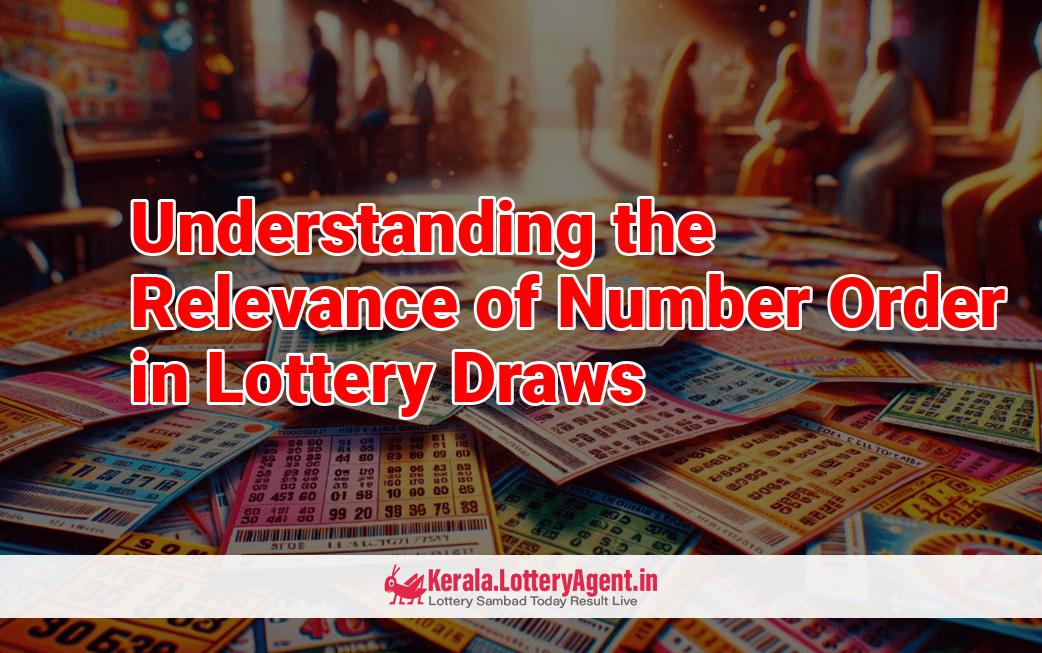
With lotteries attracting millions of hopefuls, the question arises: does the order of drawn numbers affect your chance of claiming that coveted jackpot? Let’s delve into the fascinating details of lottery rules and the significance of number sequences in determining winners.
Is the Sequence of Lottery Numbers Significant?
The straightforward response to whether lottery numbers need to be in a specific order to win is no. What’s crucial is the combination of digits on your ticket corresponds with the numbers pulled during the lottery. You can rest easy knowing that there’s no need to arrange your chosen numbers in any sequential pattern.
However, that’s not the whole story. While the rule holds for most traditional lotteries, there are exceptions with unique rules. For those with an interest in the ins and outs of their favorite lotto games, it’s worth exploring these various play styles and how they might consider number order.
General Lottery Structure and Number Order
In numerous classic lotto games – think Powerball, Mega Millions, SuperEnalotto, Eurojackpot – your chosen numbers drawn from a larger pool win the prize regardless of order. Whether your numbers are lined up in ascending, descending, or total disarray, you remain in the running for the jackpot.
Take SuperEnalotto as an example. If the winning numbers come out as 35-7-54-23-10, your ticket could display 7-23-54-10-35 or any other permutation to secure the jackpot. The order is inconsequential.
Daily Lottery Games and Winning Combinations
When looking at daily draw games, things get more nuanced thanks to the variety in play styles and rule sets. Key types include straight, 3-way, and 6-way box plays – each with its approach to number order and winning combinations.
Straight play insists on an exact match in the order the numbers were drawn. Conversely, box play embraces flexibility, where a match can occur in any sequence. Understandably, straight play presents a more formidable challenge in lining up the exact order, increasing the odds and making a win trickier.
The Drawing Process and Randomness
Lottery systems pride themselves on delivering a high level of randomness in draws. Sophisticated lottery machines thoroughly mix the numbered balls to guarantee unpredictability. This process, conducted transparently to ensure fair play, affirms that organizers cannot manipulate the outcome.
This randomized drawing results in numbers that appear without following any sequence. Hence, your ticket’s number order can be disregarded when it comes to traditional lottery results.
Odds and Lottery Number Order
The odds in game types where number order is significant greatly differ. For example, games like Canada’s Pick 3 allow players to choose three digits from 0 to 9, with the possibility of repeats. Straight play here means just one winning combination, compared to potentially several in box play. Clearly, the more challenging straight play correlates with steeper odds.
Leveraging Number Order as a Strategy
Interestingly, some players adopt number sequence as a strategic component of their lottery approach. Daily games or lotteries that emphasize straight play require attention to number order and can be key to a win.
Still, when it comes to the biggest international games, number order takes a backseat. Regardless of whether you play Powerball, Mega Millions, or Eurojackpot, any order can win if your numbers match those in the draw.
Lottery Number Order: Common Questions Answered
In lotteries with one number pool, the sequence typically doesn’t impact winning, unless specified in the rules. For games like Powerball and Mega Millions, which use two number pools, it’s all about matching the numbers, not their order.
With Pick 3 games, on the other hand, your choice – straight or box play – dictates the importance of the number order. Incorrect order in daily games can result in a loss, while in classic lottery games like Powerball or Mega Millions, it’s simply irrelevant.
Finally, in the random draw world of lotteries, ascending or descending order of played numbers holds no significance. The draw’s randomness ensures no particular pattern.
Conclusion
In essence, for the majority of lotteries, number order is not a determining factor. Nevertheless, players should always refer to game rules for nuances. There’s no universally perfect way to pick lottery numbers, with strategies, quick picks, and personal lucky numbers all being viable methods according to player preference. For a truly satisfying experience, it’s worth exploring and understanding the unique mechanics of your chosen lottery game.











